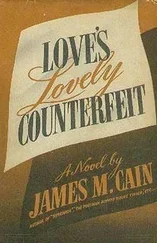1 ...6 7 8 10 11 12 ...20 Yet toward Peter, Thropp hadn’t acted badly at all. To the contrary! Thropp had treated Peter with courtesy. He’d shown Peter respect in meetings. He’d given Peter credit when it was due him and encouraged and praised him, calling him “Champ.” Oh, sure, sometimes he could be pretty blunt, but it was hard to see what was so bad about Gregg Thropp. Peter had come to trust Thropp so much that he even went into Thropp’s office one day to show him something that had made Peter especially proud. He had played an important part in a couple of notably profitable transactions that had come to fruition when he was working for Thropp but that had been initiated previously. On this day Peter had discovered a small square envelope in his interoffice mail; inside, there was a handwritten note from Arthur Beeche himself! The note read as follows:
Dear Mr. Russell,
Please accept my congratulations on your fine work in the reinsurance and Italian bond matters. Well done!
Yours very truly,
Arthur Beeche
P.S. I hope you will join us soon for one of our entertainments.
Well, as one might imagine, Peter had been bowled over. A personal note from Arthur Beeche! What was more, it looked as if Peter was in line to receive an invitation to dinner at Beeche’s house. Arthur entertained often, and his dinners were legendary for the quality of the food and drink and for the glamour of the guests. A few people from the firm were usually included, and to receive your first invitation was an important honor. You were supposed to act nonchalant about it, but Peter had been so amazed and pleased that he’d taken the note into Thropp’s office and showed it to him.
“Well, well, well!” Thropp had said. “The Champ scores!” He had stood up and begun to lift and lower his arms in front of him, an absurd-looking motion for one so short. “Come on! The wave! The wave!” Thropp did this a few times before he started laughing too hard to continue. When he had recovered, he had looked at Peter earnestly.
“I’m proud of you, Peter,” Thropp had said. “I really am. One thing you can sure say about Arthur Beeche is that he has his eye out for talent. You’ve done good work and you deserve to be noticed. Congratulations.”
Thropp had held out his hand and Peter shook it.
“When I’m working for you,” Thropp had continued, “and it looks like that’ll be any day now, you won’t screw me, will you?”
They had both laughed.
Thropp wasn’t such a bad guy!
A few days later, Thropp had wandered into Peter’s office, looking thoughtful. “Say, Peter,” he had said, “you know your idea about securitizing home equity? I’d like to have a meeting on it.”
“Really?” said Peter. “But, God, it’s such a big thing, and it was just something I was fooling around with. I don’t think it’s anywhere near ready for a meeting.”
“Oh, it wouldn’t be a big deal. Just Huang, Kelly, Matt, you know, people like that.”
“But—”
“I’ve been thinking about it. There are a lot of possibilities. Let’s kick it around. Be a good thing for the team. Get some juices going.”
So it had been agreed that in a few days a meeting would be held at which Peter would give a presentation on his idea. This was the aforementioned meeting, which had descended into a bloodthirsty dance of death.
Peter had gotten a jolt as soon as he had entered the conference room. First of all, the place was already full, which was suspicious. Then he noticed that he didn’t see Huang, Kelly, Matt, or any of his other friends. Where was T.J.? T.J. should have been there! Peter barely knew some of the attendees. More troubling still, a man and woman from Upstairs were sitting in a corner of the room, away from the table. The man, a trim, fortyish black guy, was wearing his jacket even though everyone else was in shirtsleeves. The woman, in her fifties, sat there with an imperious, pre-bored expression. Peter had never met them, but he knew who they must be. He set up his computer and its connections; he noticed that his hands were shaking.
Thropp had begun the meeting. “Welcome, everyone.” He nodded toward the man and woman. “Rich, Andrea, thanks for taking the time to come down.” He rubbed his hands together. “Well, now, we’re all here to listen to Peter tell us about his new idea. Peter has been quite mysterious about it, playing it close to the vest, so I can’t tell you much about what he’s cooked up. He tells me it has the potential to be something very big. I’d usually want to spend some time going over a presentation like this myself, but Peter was so insistent on having a meeting that I said okay just to get him off my back!” Mild chuckles.
Thropp turned to Peter with a smile and gestured to him. “Go ahead, Peter,” he said. “It’s your meeting.”
This isn’t right, Peter thought. His heart began to pound. “Thank you, Gregg,” he said with a quaver.
What he had to say was very preliminary, he explained, and he had only a few slides to show. Then he had gone through it all: What is the greatest source of wealth in the country? The equity people have in their houses. Over the past twenty years, the debt on people’s houses had been securitized, providing a great benefit to borrowers and investors—and the firms in the middle. In Peter’s view, the mortgage market looked shaky. Would there be a way of securitizing home equity? Say a homeowner could sell some of the equity in his house. There could be individual transactions (after all, each mortgage is individual), and you could bundle up those equity stakes just as in the mortgage-backed market. Think of the advantages: home buyers would have an alternative to debt; homeowners could pay down debt and benefit from a rise in prices without selling their houses or borrowing more; they could diversify, buying equity in houses in different markets from their own. With the home equity securities would come hedging opportunities: people could short their own houses if they were in a bubble, and there would be any number of derivative plays. It would spread risk around, make the market more efficient. Then imagine the money you could make if you were the first to come up with such a product.
Peter liked his idea even though it was at only the fantasy stage, and as he spoke he couldn’t help but become more enthusiastic about it; this excitement combined with his anxiety made for a great agitation within him, as he allowed himself to think that he might possibly have carried others along.
He hadn’t. After he finished, saying, “Well, that’s about it. As I mentioned, it’s all very preliminary,” there was silence. A cough. A rustle of papers. Some taps of a pencil. Another cough.
Thropp spread out his hands. “Reactions? Rajandran?”
Rajandran was one of Thropp’s liege men, and Peter didn’t know him well; he spoke with great precision, polishing every phoneme. “Well, I am sure we all agree that Peter has some interesting ideas.” He smiled. It was amazing how white his teeth were. “But it seems to me that he’s missed the boat on this one.” Rajandran rattled on for several minutes, enumerating all the reasons everything Peter had said was absurd. The basic premise was nonsensical. The problems with execution would be horrendous. Peter completely misunderstood the market, the simplest model would show that. And on and on. Someone—some mysterious person—had obviously briefed Rajandran on what Peter was going to say and then instructed him to prepare an informed rebuttal. Peter glanced at Thropp, who was rocking in his chair and trying to suppress a smirk. Peter thought he could hear him humming.
As soon as Rajandran finished, before Peter could even begin to respond, someone else piped up. “You know, of course, Peter, that a futures market for housing prices was tried in London and was a complete disaster.” Another case of advance research!
Читать дальше












